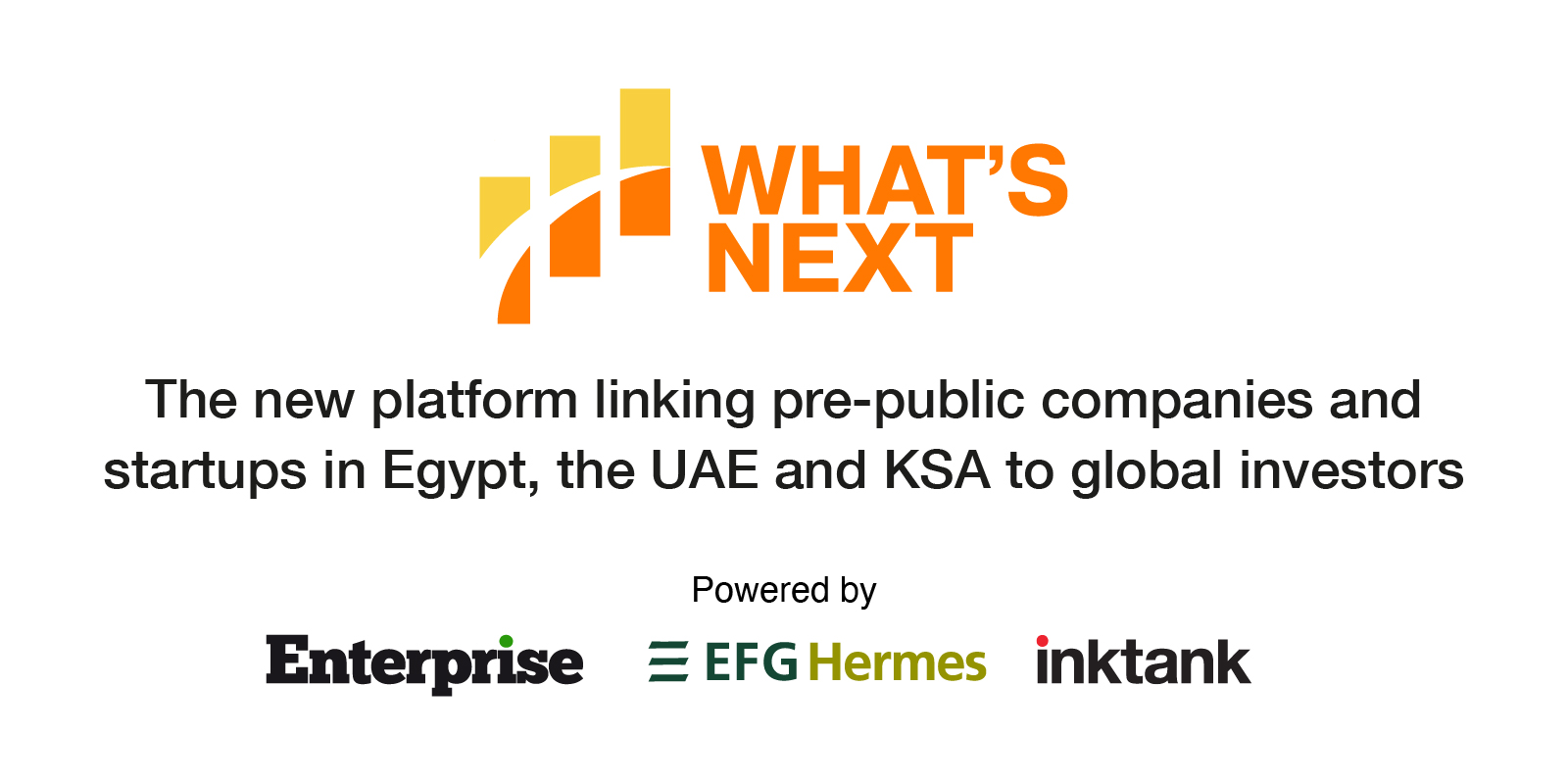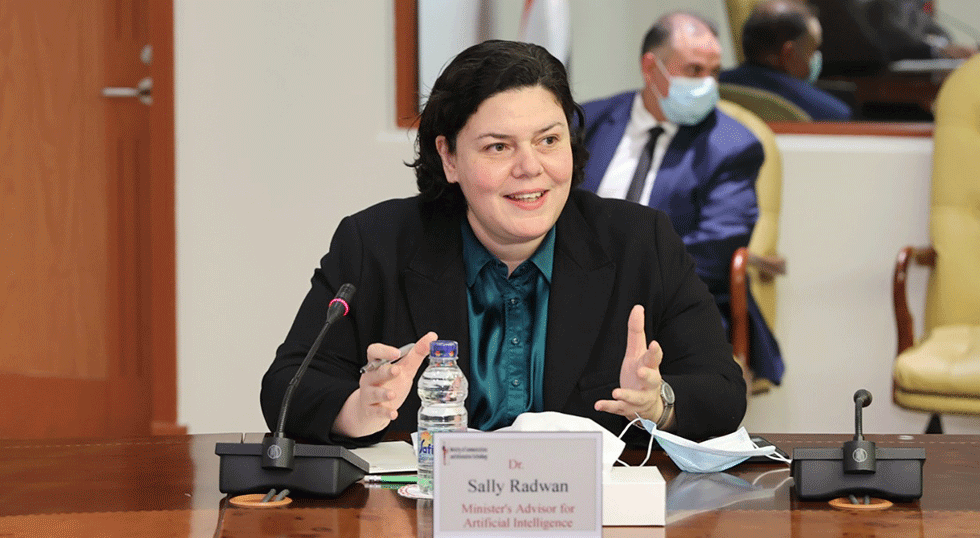How the gov’t plans to grow the AI sector: Artificial intelligence (AI) is expected to contribute 7.7% to Egypt’s GDP by 2030, according to the Cabinet’s Information and Decision Support Center (IDSC). The CIT Ministry has been working on a vision to establish an AI industry in Egypt since 2019, and accordingly established the National Council of AI to set up regulations for the sector.
We spoke with the CIT Minister’s advisor on AI, Sally Golestan Radwan, who has spearheaded the country’s national AI strategy, about what the strategy is built on, what has so far been implemented, and what still needs to be done for AI to achieve its full potential in Egypt. Radwan has over 17 years of experience in AI, cloud computing and engineering management, in the UK, US and Germany. She served as director of the AI Products Unit at London-based health tech startup Babylon Health, VP of product strategy at OnApp-UK for cloud management systems, and cloud product marketing manager for UK-based Canonical / Ubuntu.
Below are edited excerpts from our conversation:
The AI industry in Egypt was scattered before 2019. AI efforts in Egypt back then mainly focused on video analytics and computer vision, which means computers using visual input to take action or make recommendations. Some banks and telcos had also started implementing some data science techniques for customer retention, credit scoring and risk assessment. That’s when we started thinking about what Egypt wants to get out of AI.
AI is an aid to humans, rather than a replacement. There were lots of questions by different stakeholders about job losses due to AI, monopolization of big corporations and security threats. The fear of artificial general intelligence, where AI evolves beyond the capabilities of human beings to handle it, was also part of the discussion. And the data proves otherwise — countries that absorb AI in their economies can extract more value out of it than they are likely to suffer from things like job losses.
AI’s contribution to the labor market is actually positive, as it tends to create more jobs than it destroys. But it will result in job displacement, which means that different kinds of jobs will be created. Of course, we had to think about how to deal with these developments, and how we can upskill the population as a whole.
We then reached the conclusion that Egypt needs a national AI strategy focused on narrow AI. In its current form, narrow AI is a set of advanced methods to analyze data and use it to extract patterns to predict and optimize certain values in a more sophisticated way than traditional data analysis tools can. This can include things like natural language and speech understanding, forecasting models for any kind of application in cultures, and industries, or optimizing a set of variables to shorten the innovation cycle in manufacturing and so on.
The ultimate goal is to create a “complete” AI industry in Egypt. This includes everything from people, skills and competencies, to institutional capacity building, ecosystem, platform, technologies, legal and ethical frameworks and so on. The objective behind the national AI strategy is to help Egypt fulfill its own development goals and to be proactive in the global AI discourse. We are not aiming to be part of the global AI race for the sake of it, but rather to use AI effectively for the benefit of all Egyptians. We want to, however, be part of the conversation about the effect of AI on labor markets, economy, society, environment, ethics, culture, heritage preservation and so on, at the regional and global levels.
The strategy is built on four pillars: AI for government (AI4G), AI for development and prosperity (AI4D), AI for humans (AI4H), and AI for international relations (AI4X). It was built with the involvement of various stakeholders, including the private sector.
AI for government puts a layer on top of the government’s digital transformation efforts. So as government services and processes are being digitized, we ask ourselves how to make them smart through AI. The aim is to enhance speed, personalization, efficiency and transparency. The second part is about how to embed AI into any government process, such as procurement, HR, document management and so on, to make sure it becomes more standardized and transparent.
AI for development looks to deploy AI in strategic sectors to help Egypt achieve its development goals. The 10-year strategy prioritizes a number of sectors in which to embed AI, based on their readiness, state of digital transformation, and benefits for citizens. These sectors are agriculture, healthcare, economic planning and development, smart infrastructure and manufacturing, and natural language processing (NLP) for Arabic. The priority is to localize the development of the technology, as opposed to importing it from abroad.
AI for humans focuses on building the capacity for the AI industry in Egypt across all ages. Our aim is to optimize processes and preserve jobs where possible. The best way to integrate AI is to increase the size of the pie and generate more opportunities, as well as upskill workers and employees.
Our capacity building framework is built on two structures: one for technical roles, and one for non-technical roles. The technical roles are prioritized based on how many people are needed to play certain roles in the industry. The non-technical side looks at training people to be able to better use AI in order to capitalize on it, and starts with general public awareness and education on a very basic level. It continues with school education and teacher enablement, before entering the higher education tier. The higher education tier integrates AI knowledge into the curricula of non-STEM and non-tech majors.
The framework is then translated into a set of programs and career development paths, making sure that they are relevant to the market, which is why we work with academic institutions, private sector institutions and governments. One of the programs was an AI hackathon in partnership with Dell for students and working professionals.
AI for international relations revolves around bilateral relations with private and governmental entities, and most importantly international organizations. So far, about 10 cooperation and technology transfer agreements have been signed with governments and private sector players since the establishment of the National Council for AI.
We also want to take a proactive, leading role in driving the discourse around AI. Africa and the Arab nations should be part of the global conversation that develops regulations. This is where international AI-focused organizations come into play. The ultimate aim is to unify our voices and give them more weight in face of the global AI race, which is very skewed. If you’re not an active player, then you don’t get a seat at the table.
IN NEXT WEEK’S ISSUE- Radwan walks us through how these pillars are being implemented on the ground and what role the private sector will play.
Your top stories on future trends for the week:
- Mass transit firm Swvl is investing USD 15 mn in Argentina over the next three years to scale the company’s operations in the country.
- US-based therapy provider Astute Imaging has acquired Egypt-based healthtech startup DilenyTech, which provides radiology screening and diagnostic solutions powered by AI.
- Fitness app Welnes has raised USD 300k in a seed round led by Flat6labs, which it will use to grow its headcount and to prepare the company for expanding into the GCC by 2023.
- The International Finance Corporation (IFC) has committed USD 5 mn to Disruptech Ventures’ new fund to support the Egyptian fintech sector and make financial services more accessible.

